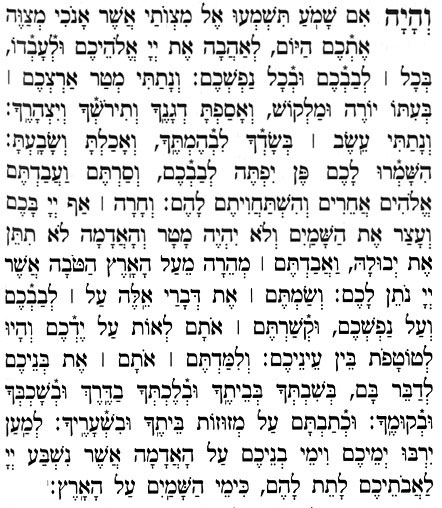

One difficulty with this interpretation is that Hebrew normally expresses “alone” with levad, as in “You alone are God of all the kingdoms of the earth” (2 Kings 19:15, 19 and Psalm 86:10). The first possibility, which is followed in the NJPS (new Jewish Publication Society) translation, is based on Ibn Ezra and Rashbam. “YHVH our God, YHVH is one”) (3) “YHVH our God is one YHVH.” (1) YHVH is Our God, YHVH Alone Grammatically, “YHVH our God YHVH one” could be rendered in several ways, such as (1) “YHVH is our God, YHVH alone” (2) “the LORD our God, the LORD is one” (lit. Where to do so depends on context and is sometimes uncertain. The four Hebrew words “YHVH eloheinu YHVH ehad” literally mean “YHVH our God YHVH one.” Since Hebrew does not have a present‑tense verb meaning “is” to link subject and predicate, the link must be supplied by the listener or reader.

The precise meaning of the Shema is uncertain. Reprinted from The JPS Torah Commentary: Deuteronomy with permission of the Jewish Publication Society.

Stephen Geller of the Jewish Theological Seminary understands the word “one” to imply superiority of power–as in, “YHVH is #1”!–rather than as a statement regarding monotheism. Some scholars disagree with the author’s tentative conclusion regarding the most likely meaning of this verse. This article explores three possible interpretations of the Hebrew words and syntax of Deuteronomy 6:4. My Jewish Learning is a not-for-profit and relies on your help Donate


 0 kommentar(er)
0 kommentar(er)
